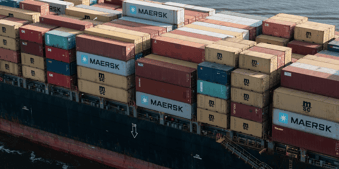The Global Political Economy (GPE) refers to the complex interaction between political and economic forces that shape our world. By analysing events like trade wars, financial crises, and initiatives such as the UN's Sustainable Development Goals, we gain insights into how these forces influence our lives and the global landscape.
What is the Global Political Economy?
The Global Political Economy (GPE) refers to the interaction of political and economic actors, factors and processes at all levels and scales, from the household to the world market.
These actors include states, corporations, international organisations such as the International Monetary Fund and the World Bank, but may also include social movements with a transnational reach, such as the global climate movement and mass mobilisations against authoritarian rulers.
The GPE reflects both the opportunities and challenges of globalisation, including issues of inequality, sustainability, and governance. As a constantly evolving entity, the GPE is shaped by historical legacies, geopolitical rivalries, technological innovations, and shifting patterns of production and consumption.
The study of GPE adopts an interdisciplinary approach, drawing insights from international political economy (IPE), international relations, political economy, sociology, and more. This allows scholars to analyse complex global phenomena from various perspectives.
As a result, GPE has become a productive field for critical social science research into pressing global issues, such as world poverty, inequality, gender relations, economic crises, and the environment.
Why is the global political economy important?
The GPE is crucial for understanding the complex interactions between politics and economics on a global scale. It helps policymakers monitor, understand and predict the impact of political and economic issues. It provides a framework for analysing power relations between states and other actors in the global economy. Policymakers but also practitioners working in the private and third sector can use this analysis in a variety of ways. For instance, to identify sources of leverage and influence in trade negotiations and economic conflicts.
For example, consider how the trade war between the United States and China, characterised by escalating tariffs and trade barriers, has had far-reaching consequences for both countries as well as for the global economy. The trade dispute has disrupted global supply chains, dampened economic growth, and exacerbated geopolitical rivalries. Despite diplomatic efforts to negotiate a resolution, disagreements persist, highlighting the complex interplay between economic interests and political dynamics.
The GPE also offers the chance to learn important lessons from the past and address pressing global challenges such as poverty, inequality, environmental degradation, financial instability, and geopolitical conflicts. By examining the underlying political and economic factors contributing to these challenges, a thorough understanding of the GPE is essential for policymakers, scholars, and practitioners to develop strategies and policies for promoting sustainable development, peace, and prosperity.
When the US housing market went bust in 2007, for example, this led to the 2007/08 Global Economic Crisis (GEC). The crisis exposed excessive risk taking by global financial institutions, some of which declared bankruptcy or received millions in bailouts. Following the crisis, the G20 committed to fundamental reform of the global financial system and increased regulation via the Financial Stability Board (FSB).
In the UK, to prevent a repeat of the collapse of Northern Rock Building Society, the Government launched the Financial Services Act 2012, and many other countries have followed the heed of the Basel Committee for Banking Supervision in strengthening their regulatory framework. While there are no guarantees that similar banking and financial crises might occur in the future, it is undeniable that such measures have made banking safer.
The UN’s Sustainable Development Goals (SDGs) is an example of multiple nations working together to achieve a common good in the face of significant developmental and environmental challenges. A total of 17 SDGs, which include a commitment to no poverty (SDG1), decent work and economic growth (SDG8) and responsible consumption and production (SDG12), have been adopted by all 193 member states.
Understanding these dynamics of international cooperation, but also the inevitable elements of competition, between and within states, for instance on which goals to agree upon and how to pursue them is exactly what the study of the GPE helps us unpack.
What’s the benefit of studying the King’s online Global Political Economy MA?
As a student of the King’s online Global Political Economy MA, you’ll gain an advanced knowledge of theories of and issues in international political economy, as the field primarily concerned with the study of the GPE, and you will also engage with approaches from other social sciences. As a result, you will be able to analyse contemporary political, economic, and social transformations on a global scale, from automation to geopolitical competition, from the climate crisis to poverty and inequality, from a range of different disciplinary and empirical perspectives.
You’ll engage with these theories and approaches through case studies focusing on specific countries, regions, international organisations, multinational corporations, and sectors of the global economy. This will help you develop a wide range of problem-solving skills that will strengthen your profile in the eyes of prospective employers in a range of fields. These include, but are not limited to, government bodies, international organisations, non-governmental organisations, and private sector actors.
Gain an in-depth understanding of the pressing global political and economic challenges of our times with the King’s online Global Political Economy MA. Study part-time over two years:



